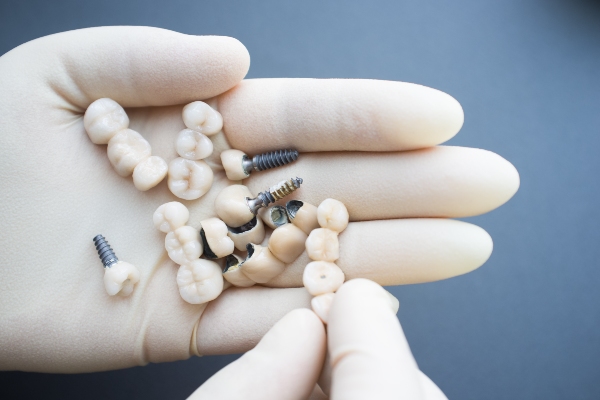Tooth Extraction Is a Common General Dentistry Procedure
Of the many services dentists provide, is among the most frequent. There are various reasons why this treatment may be necessary. Though it can be difficult to have missing teeth, removing one can be beneficial for some conditions. If your dentist has recommended that you undergo this procedure, it is helpful to first learn about the process. You can then feel more comfortable and at ease during your appointment.
When tooth extraction is necessary
Often, extracting a tooth is the last method a dentist would consider. Restorative treatments such as dental veneers, dental crowns, and fillings can often address a patient’s needs. However, if a tooth is badly damaged beyond repair, extraction is the right method. Severe fractures or cracks can be so extensive that no other restorative treatment can save the tooth.
Infection is another reason why extracting the tooth might be the right approach. This can keep the infection from spreading into other parts of the body. Removing a tooth may also be the dentist’s recommendation if there is excessive decay. When a filling or root canal is not enough to repair the tooth, the dentist will have to pull it out. When teeth are crowded, removing one or more can create space.
How the process works
When a tooth is in place, the dentist may use a local anesthetic to numb the area. This will reduce or eliminate any pain that the patient feels during the tooth extraction. Once the patient is numb, the dentist may have to cut into the gum tissue to expose some surrounding bone. Removing some of the bone can help with the removal process. The dentist then pulls out the tooth with a dental tool.
For impacted teeth
Tooth removal may be necessary for a tooth that has not yet broken through the gums. Another tooth could also be blocking a yet-to-erupt tooth. To remove a tooth such as this, the dentist might put the patient to sleep with a general anesthetic. The dentist will cut into the gums and break the tooth into pieces. After removing the pieces, the dentist sews the wound and controls the bleeding.
Recovery
Recovering from an impacted tooth removal will generally take longer than a non-impacted tooth. The patient should rest and avoid strenuous activities for at least a day. Taking pain medication can relieve any discomfort. Also, the patient should apply an ice pack to the affected area to manage any swelling that occurs. It may help to avoid eating hard, sticky, or chew food for a few days.
Care for a dental extraction
Removing a tooth will leave an open wound in the gums. The individual will need proper care after this procedure. Controlling the bleeding is a priority. This can happen by biting on sterile gauze. A blood clot will form in the tooth socket. Biting on a tea bag can help stop the bleeding because of the tannic acids in it.
Controlling the pain is also important. The dentist will prescribe some pain relievers and anti-inflammatories. Taking these medications can result in drowsiness. The patient must not drive or operate heavy machinery after taking them.
Reducing the swelling in the gum tissue can help minimize the pain as well. Placing an ice pack on the cheek for 10 minutes can help bring down the inflammation. The patient can repeat this at five-minute intervals. There could be some facial bruising later on, but this will fade on its own.
Going to bed early can help the body recover right away. Elevating the head will reduce the pain and bleeding. A soft diet can prevent the patient from chewing hard. It also keeps the blood clot intact for healing. Brushing gently without any toothpaste will prevent the clot from dislodging. Rinsing the mouth with salt water after 12 hours can help the area heal.
Replacing the tooth
The dentist may or may not recommend replacing a tooth after a tooth extraction procedure. If the dentist removed the tooth because of crowding issues, the dentist will not replace it. However, if the dentist and patient decide to fill in the gap, there are a few options. Dental implants, dentures, or a dental bridge are the most common choices.
Be prepared for your visit
If you have an upcoming tooth extraction appointment, you probably feel a little nervous. Your dentist has the knowledge and training to successfully perform this procedure. It can also put your mind at ease to know more about how the process works. You should also be aware of when this is the right treatment.
Request an appointment here: https://www.newyorkdentaloffice.com or call New York Dental Office at 2125483261 for an appointment in our New York office.
Check out what others are saying about our dental services on Yelp: .
Recent Posts
Want more information about the tooth extraction process? If you have recently found out that you need to have one or more of your teeth extracted, understanding what is involved will help you recover in a more timely manner. This is especially important because there are some things you must do and other things you…
The idea of getting a wisdom tooth extraction is something that can spark fear in people because it does involve the removal of very embedded teeth; however, modern technology has made the procedure less painful. Additionally, the in-depth training that general dentists undergo ensures that the process will be efficient and quick.For the most part,…
Tooth extraction isn’t generally that complex of a procedure unless we’re talking about wisdom tooth removal. While normal and even surgical extractions can be standard practice, having your wisdom teeth taken out can be a much more involved task for both you and your dentist, depending on the situation behind the removal. It is not…
Wisdom teeth are the last to erupt. These teeth are also called the third permanent molars. They erupt after all the permanent teeth have emerged and established in the mouth. People who start to have these teeth experience inflammation and pain. If you want to know if your dentist must remove your wisdom teeth or…



